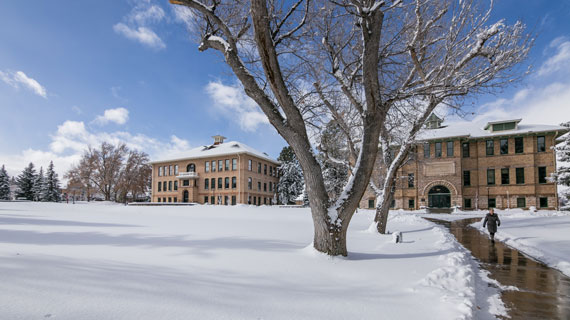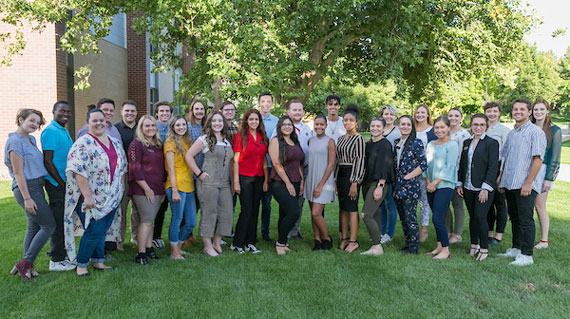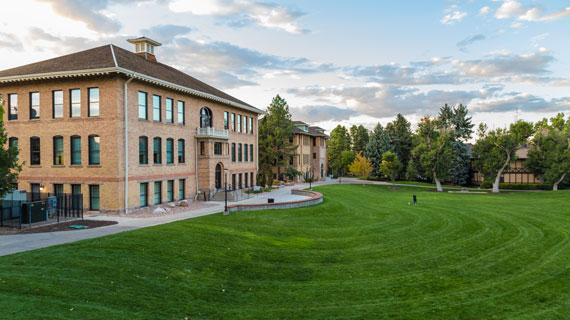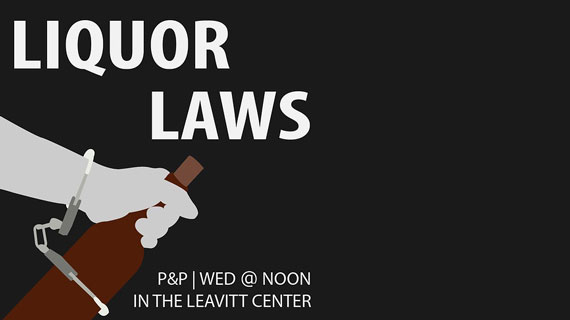Pizza and Politics Focuses on DACA This Week
Posted: February 13, 2018 | Author: Miles Anderson | Read Time: 4 minutes
 The Michael O. Leavitt Center for Politics and Public Service hosts Pizza & Politics every Wednesday at noon to discuss a current political topic. Leavitt Center student employees research the topic and moderate the conversation. These discussions expose students to a variety of important issues and encourages them to share their own perspectives while learning all sides of an issue. Free pizza is provided for all who attend.
The Michael O. Leavitt Center for Politics and Public Service hosts Pizza & Politics every Wednesday at noon to discuss a current political topic. Leavitt Center student employees research the topic and moderate the conversation. These discussions expose students to a variety of important issues and encourages them to share their own perspectives while learning all sides of an issue. Free pizza is provided for all who attend.
DACA, which stands for “Deferred Action for Childhood Arrivals” has been a hot political topic since its implementation in 2012 and even more so in the last year. Moderators Ayleen Perry, a senior English major, and Miles Anderson, a senior political science and psychology major, facilitated the discussion on the future of DACA in America.
DACA is a program that provides opportunities and protections for those who were brought to the United States illegally as children. It is a two year renewable status that protects them from being deported and allows them to pursue higher education, receive work permits, and in some states, drive legally. The requirements for DACA include being under the age of 31 as of June 15, 2012, having entered the U.S. by age 16, currently enrolled in school, have completed high school or GED, or honorably discharged veteran of the Armed Forces of the U.S., have not been convicted of a felony or three or more misdemeanors, and several other requirements.
The following questions were posed to the audience:
Should the requirements for DACA be more or less inclusive?
The consensus on this question seemed to be that the group of people who qualify for DACA are definitely an important group to provide protection for because they had no say in entering the country illegally with their families as children. Some indicated that they thought the requirements should be less stringent, allowing more people to participate, while others expressed that they like the requirements the way they are. Nobody seemed to believe that the requirements should be more stringent.
Of those eligible for DACA, only 52% actually use the program.
Thoughts on why 48% of eligible people choose not to participate in DACA?
The first answer to this question indicated that fear likely plays a role in the decision to participate. While DACA protects them from deportation, it does not protect their families from deportation. The fear of exposing their parents as undocumented immigrants may keep eligible people from going through the process. Simply not knowing about the program was also cited as a possible reason for not participating.
It was also noted that there is a $500 fee to apply for DACA and that may be too expensive to be worth it for some individuals. One audience member even stated that they know someone personally who chose not to participate in DACA because of the fee.
The DACA participation rate in Utah is 74%, compared to a national average of 52%.
Thoughts on why the participation rate is higher in Utah?
Several theories were mentioned in response to this question but the theme seemed to be that the culture of Utah is generally more accepting of all people and fosters a much less hostile environment than in many other places. The LDS church was mentioned several times as having spoken out in support of DACA recipients and their families which may contribute to the culture and attitude toward undocumented immigrants.
DACA was enacted by President Obama as an executive order, not as legislation through Congress.
Did President Obama overstep his boundaries with the DACA executive order?
This question received mixed responses. Some expressed that they are opposed to the use of executive orders in general as it is not a power granted by the Constitution, but are glad that this group of people was protected in this case.
Others indicated that Obama didn’t have any other choice after the DREAM Act failed which would have provided protection for the same demographic of people as well as providing a path to citizenship for them. After the legislative path failed, President Obama had to act or DREAMers would have been at risk of deportation.
President Trump has put forth an immigration plan that seeks to remove the VISA lottery system, limit extended family migration, and fund a $25 billion dollar border wall in exchange for providing protection for DACA recipients.
Thoughts on President Trump using DREAMers to bargain for his immigration agenda?
Some audience members commented that this is not a new concept for a politician to essentially barter for certain policies. It’s done every single day in Congress. But others said they feel as though this case is different because human beings and their futures are on the chopping block.
Who learned something new today?
Audience members and moderators alike learned much about DACA and the perspectives of others during the discussion. One individual expressed that they were very pleasantly surprised with how supportive the group at large seemed to be of DREAMers.
This article was published more than 3 years ago and might contain outdated information or broken links. As a result, its accuracy cannot be guaranteed.
Tags: Student Blog Leavitt Center




